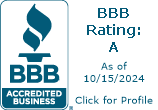New Hampshire CDL Test Requirements and Endorsements

- The various types of CDLs
- What to take to the DMV
- The different skills to know
Obtain a Commercial Driver's License
Do you want to earn your New Hampshire commercial driver's license? Depending on your current career or personal interests, you may need to obtain a CDL. Though the process may seem overwhelming, we've put together a helpful guide that will show you the various ways to succeed at the DMV. Start preparing and you'll soon be ready to take a knowledge test.
Available CDL Courses
Individual Courses:
- General Knowledge
- Air Brakes
- Combination Vehicles
- Doubles/Triples
- Hazardous Materials
- School Bus
- Passenger Transport
- Pre-trip Inspection
- Tankers
Sign Up Now - Instant Access
Do You Need a CDL?
Do you currently live in the State of New Hampshire and plan on operating a Class A, B, or C commercial vehicle? If so, then you will be required to earn a New Hampshire commercial driver's license. If you wish to operate double/triple trailers, tanker vehicles, passenger vehicles, or vehicles placarded for hazardous materials, you will need to obtain endorsements.
- Class A License - This license is needed to operate combination vehicles that have a Gross Combination Weight Rating (GCWR) that exceeds 26,000 pounds, but only when the Gross Vehicle Weight Rating (GVWR) of the vehicle being towed is over 10,000 pounds.
- Class B License - You'll need this type of license to operate single or combination vehicles where the GVWR of the single vehicle exceeds 26,000 pounds. The vehicle being towed cannot weigh more than 10,000 pounds.
- Class C License - Earn this license to operate vehicles designed to transport 16 or more passengers, including the driver, as well as vehicle placarded for hazardous materials that don't fit into the above categories.
The CDL Skills Test
If you successfully complete a knowledge test, you'll be permitted to take a skills test. During this test, you'll be judged on the following: pre-trip inspection, basic vehicle control, and on-road driving. These tests must be taken in the type of vehicle you wish to become licensed to drive.
- Pre-Trip Vehicle Inspection - It's vital to know if your vehicle is safe to operate. You will be asked to conduct an inspection and explain your findings.
- Basic Vehicle Control - Can you properly control your vehicle? You need to be able to move your vehicle forward, backward, and turn it within a defined area.
- On-Road Test - You'll be tested on your ability to drive the vehicle in various traffic situations, including: streets, highways, railway crossings, and more.
Further Requirements
There are further requirements you'll need to meet, such as: you must be 18 years old to drive intrastate and at least 21 years old to driver interstate. You will also be required to pass a physical examination every two years. You must have good hearing, 20/40 vision with or without glasses or contact lenses, and a 70-degree field of vision in each eye. Drivers cannot be colorblind.
Going to the DMV
Only go to the DMV once by making sure you have these documents with you: your current driver's license, a Department of Transportation Physical Examination Form, and your social security card. New Hampshire ID and Required Documents
Fees to Pay
New Hampshire DMV fees may reflect the specific county you reside in. For a current list of fees, visit the New Hampshire DMV.
Driver's License Info on New Hampshire's Official DMV website
Helpful Information
New Hampshire CDL Manual:
New Hampshire CDL Driver's Handbook![]()
For Federal Requirements for a CDL: http://www.fmcsa.dot.gov/registration-licensing/cdl/cdl.htm
For Medical Requirements for a CDL: http://www.fmcsa.dot.gov/rules-regulations/administration/medical.htm


